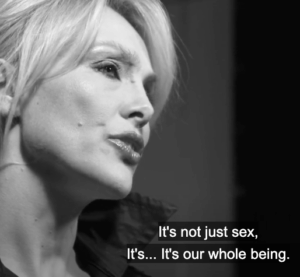Have you ever experienced a fleeting but intense desire that seems completely out of character? Perhaps a thought so unexpected that it left you questioning yourself? These moments can reveal deep, unconscious layers of our psyche—hidden fears, unresolved conflicts, or even suppressed needs. Let’s explore why these impulses emerge and what they tell us about our inner world.
The Nature of Unexpected Desires
A sudden impulse can feel unsettling, especially when it contradicts our conscious beliefs and life choices. For example, imagine someone who has never wanted children experiencing a brief, intense wish for pregnancy. This does not necessarily mean a true desire for parenthood but might reflect a deeper psychological process at play.
These moments can be understood through Carl Jung’s concept of the Shadow—the part of our personality that holds repressed desires, societal taboos, and contradictory emotions. The Shadow operates outside our conscious awareness, only surfacing in moments of emotional intensity, dreams, or spontaneous thoughts.
Such fleeting desires are not necessarily a call to action but rather an invitation to self-reflection. Instead of dismissing them as irrational, we can examine their meaning and uncover hidden aspects of our psyche.
The Conflict Between Self-Perception and Unconscious Beliefs
Let’s consider the example of an individual who is certain they do not want to become a parent but, in a single moment, experiences a wish for it. Where does this contradiction come from?
- Cultural and Familial Conditioning Society often presents certain experiences as milestones of a “complete” life. Messages like “You will only understand true love when you become a parent” or “A woman is fully realized through motherhood” create unconscious pressure, even if one consciously rejects these ideas.
- Inherited Psychological Narratives If a parent or authority figure frequently reinforced a specific belief, it might linger in the subconscious. For instance, a mother or father repeatedly telling her daughter/son, “You will understand me when you have children,” can plant a psychological seed. Even if the daughter/son does not want children, she/he may still feel an unconscious pull toward this experience as a means of connecting with or validating her mother’s experience.
- The Symbolism of Transformation Birth, in many cultures and psychological frameworks, represents transformation and initiation into a new stage of life. The unconscious mind might interpret childbirth as an alchemical process—one that grants new strength, wisdom, or identity. If someone is already undergoing an internal transformation, their psyche may symbolically link this journey to childbirth, even if they do not consciously desire it.
The Desire for Power and Completion
Another fascinating element in unexpected desires is the belief in gaining power through transformation.
For example, some individuals may associate childbirth with an initiation that grants them a new, stronger version of themselves. This could be linked to the deep-seated human need to feel complete, powerful, or renewed. The unconscious mind seeks an experience that solidifies personal growth, even if the suggested path (in this case, childbirth) is not the most relevant one for the individual.
Instead of taking these desires literally, we can ask: What kind of transformation am I currently undergoing? Where do I feel incomplete or weak? This helps shift the focus from external symbols (e.g., pregnancy) to the internal process that is truly at play.
Recognizing and Integrating Hidden Aspects of the Self
If such unexpected thoughts arise, what should one do with them?
- Acknowledge Without Judgment
Dismissing or feeling ashamed of these impulses only strengthens their unconscious hold. Instead, recognize them as psychological messages. - Look for Symbolic Meaning
Ask yourself: Is there a metaphor in this desire? If it feels symbolic, is there another way to experience this change? Creativity, a new career, a physical challenge—what represents it in a non-literal sense for you? - Find a Ritual or Action for Completion
Sometimes, what we need is not an actual event (e.g., parenthood) but a symbolic action that satisfies the same psychological need. This could be:- A physical challenge (intense exercise, adventure, endurance activity) to embody newfound strength.
- A creative project that represents “giving birth” to something meaningful.
- A personal ritual—such as writing down limiting beliefs and burning them, signifying an internal shift.
Final Thoughts
We are not always in control of what arises in our minds, but we can choose how to engage with it. Rather than fearing or suppressing these sudden impulses, we can use them as clues to our deeper needs and desires.
By looking beyond the literal meaning of unexpected thoughts, we open the door to greater self-awareness and growth. What if these fleeting desires were not irrational but rather an invitation to explore the depths of who we are?
Contact me here, if you want to know more.




